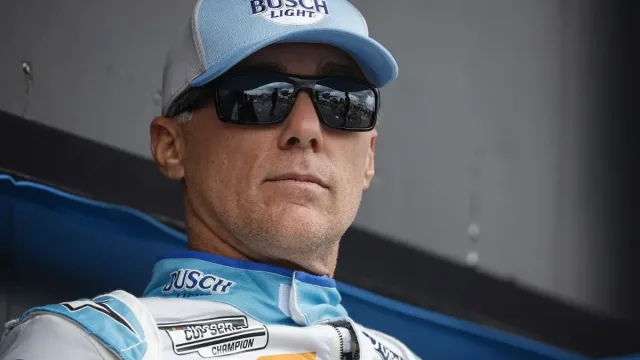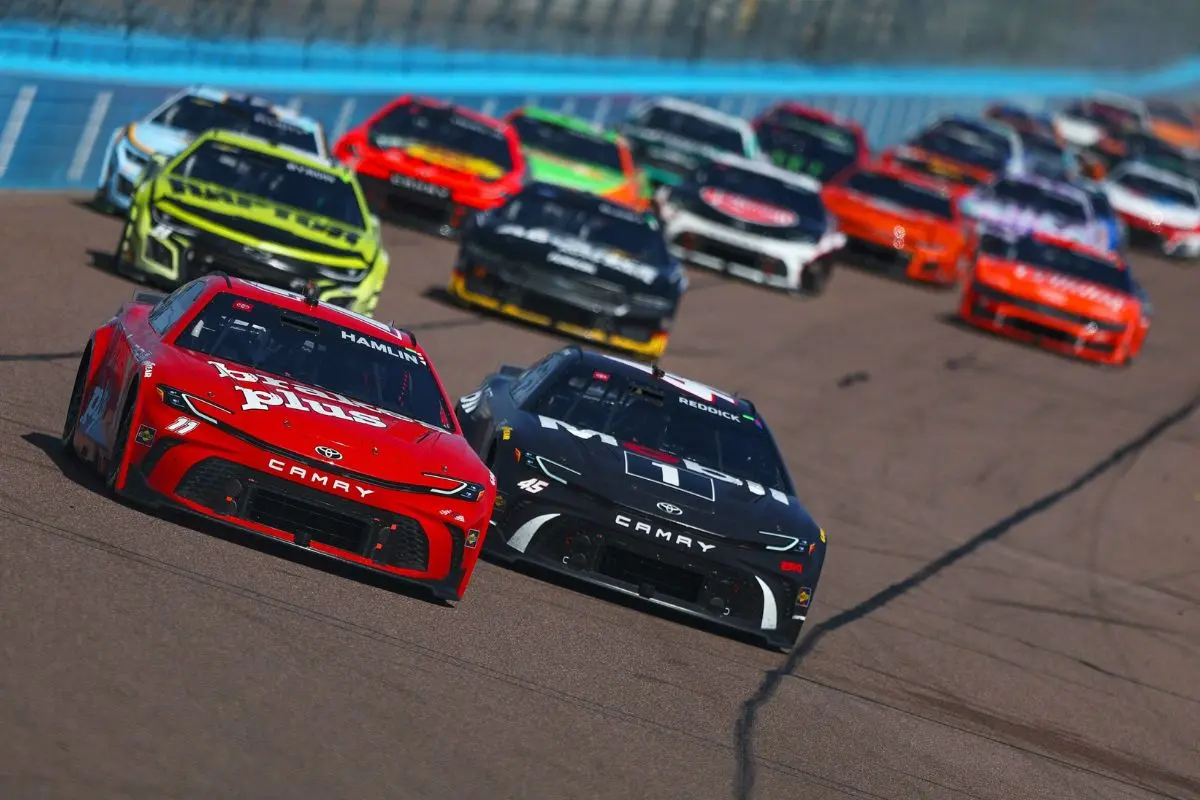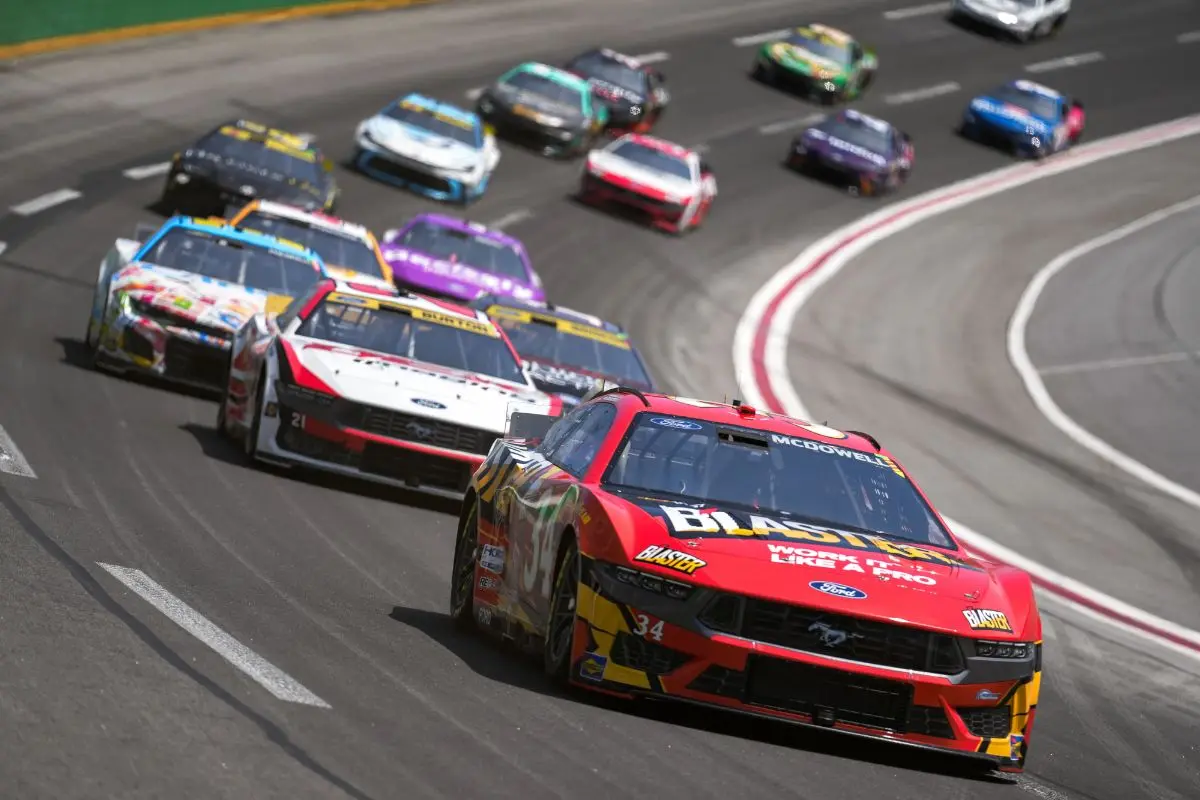Kevin Harvick hints at Manufacturer Politics in the Martinsville cheating controversy, raising serious questions about whether William Byron truly deserved his playoff spot. While Kevin Harvick acknowledged William Byron’s skill, he criticized the questionable tactics surrounding his advancement, pointing to a murky mix of ambition and ethics. Driven by manufacturer influence and team coordination, this issue threatens NASCAR’s integrity. Kevin Harvick emphasized the need for stricter rules to prevent cheating, warning that it could impact not only William Byron’s reputation but the future of the sport as well.
Key Highlights
- Kevin Harvick questioned the legitimacy of William Byron’s NASCAR playoff advancement amid the Martinsville controversy, highlighting ethical concerns in the race.
- Harvick emphasized the need for clear regulations to prevent cheating and maintain fair competition in NASCAR.
- He acknowledged that Byron’s performance fluctuations raised doubts about his competitiveness in the NASCAR championship.
- Harvick defended Byron against accusations of wrongdoing, maintaining that the controversy complicated his NASCAR playoff position.
- The incident has broader implications for NASCAR’s integrity and public perception, according to Harvick’s analysis.
Race Context
As the Martinsville race approached, tensions among the competitors began to mount, reflecting the high-stakes environment of the NASCAR Cup Series playoffs. With the NASCAR Championship 4 on the line, the atmosphere was electrified, emphasizing the relentless pursuit for supremacy. While Joey Logano and Tyler Reddick had secured their spots, the remaining six drivers were engulfed in a cutthroat battle for two coveted positions, amplifying the stress considerably.
In this climate of urgency, some teams resorted to questionable tactics, blurring the lines of legality in their quest for a competitive edge. This not only raises ethical concerns but also challenges the integrity of the sport. Kevin Harvick, a seasoned veteran and keen observer, was quick to express his discontent regarding these dubious actions. His perspective highlights the broader implications of such actions, as they can undermine the very foundation of fair competition that NASCAR was built upon.
The stakes were particularly high at Martinsville, given that the race would serve as a decisive moment in the NASCAR playoff narrative. Each driver felt the weight of their team’s aspirations, with desperation often leading to compromised judgment.
Race Dynamics and Key Competitors
The Martinsville race unfolded with a gripping intensity, particularly as the battle for the final NASCAR Championship 4 spot intensified between William Byron and Christopher Bell. As Ryan Blaney secured his position at the front, all eyes shifted towards the fierce competition unfolding behind him. The dynamics of the race became increasingly intricate, with several key factors at play that ultimately shaped the outcome.
- Byron’s Approach: William Byron showcased resilience and tactical expertise, capitalizing on the misfortunes of others as he navigated the final laps. His ability to maintain composure under strain was essential in clinching the coveted spot.
- Bell’s Dilemma: Christopher Bell found himself in a precarious situation, needing only to surpass Bubba Wallace. However, his attempt to execute a daring tactic led to the controversial “Wall Ride,” resulting in disqualification and a bitter end to his NASCAR championship hopes.
- Wallace’s Role: Bubba Wallace’s performance sparked debate, as many observers felt he relinquished his position too easily, thereby complicating the competitive landscape for Bell.
- Team Dynamics: The support from Ross Chastain and Austin Dillon for Byron raised eyebrows, suggesting a potential coordination that may have influenced the race’s outcome, prompting discussions about the ethics of team tactics.
Team Tactics and Manufacturer Influence
In NASCAR, team tactics and manufacturer influence have increasingly blurred the lines of fair competition, raising ethical questions among fans and analysts as well. The actions of drivers like Dillon and Chastain, who may manipulate race dynamics for personal gain, reflect a broader culture where tactical decisions often prioritize team objectives over individual merit. This competitive landscape invites scrutiny, particularly when team orders shift into the sphere of manufacturer directives, creating a complex web of influence that can dictate race outcomes.
The pronounced contrast with Formula One is evident; there, team orders, while controversial, remain a standard practice. However, in NASCAR, the direct influence of manufacturers may push the envelope further, breeding resentment among drivers who feel their hard-earned positions are compromised.
As drivers like Wallace work for competitive integrity against rivals like Christopher Bell, the balance between effective team strategy and ethical competition becomes increasingly precarious. Ultimately, this evolving narrative is crucial in shaping not just race outcomes, but the future perception of NASCAR as a bastion of sporting integrity.
Kevin Harvick’s Reaction to the Situation
Kevin Harvick’s reflections on the recent Martinsville controversy reveal a subtle understanding of the intricate dynamics at play within NASCAR. His remarks during the November 4 episode of the Happy Hour podcast highlight key elements that influence both the race and the industry.
Harvick emphasizes that while William Byron’s #24 car made it into the NASCAR playoffs, the circumstances surrounding his advancement were anything but straightforward.
“I had to make notes this week, because there was so much that happened. You’ve got the #24 car, the #24 car of William Byron, they get in by the skin of their teeth. There were a lot of things that happened at the end of the race. With the politics of the manufacturers and everything that was happening. #24 didn’t do anything wrong, right? Ran his race, didn’t have anything to do with it.”
“Whether you want to say he benefitted from anything or not, that don’t matter. He didn’t do anything. The thing I can tell you about the #24 is, they have not been as dominant as they were at the beginning of the year. They haven’t led laps, or won races like they did at the beginning of the year. That’s what worries me about him. What’s that speed going to be for the #24 car.” – Kevin Harvick
He delineates several critical points:
- Performance Fluctuations: Harvick notes that Byron’s performance has declined since the early part of the season, raising questions about his competitiveness moving forward.
- Political Landscape: He acknowledges the complex interplay of manufacturer politics that often sways public perception and results in the sport.
- Innocence of the #24 Team: Harvick highlights that Byron did not engage in any wrongdoing; his advancement was a product of the race’s outcome rather than any malicious intent.
- Future Implications: The uncertainty surrounding the #24’s speed and performance remains a concern for Harvick, indicating that past success may not guarantee future results.
Through these insights, Harvick articulates a sophisticated perspective that recognizes both the integrity of individual racers and the broader implications of team strategies and political navigation within NASCAR.
NASCAR’s Response and Historical Context
Recent events surrounding the Martinsville controversy have prompted a remarkable response from NASCAR, highlighting the organization’s commitment to maintaining integrity within the sport. Following disclosures of coordinated actions among Chevrolet teams to strengthen William Byron’s NASCAR championship position, NASCAR swiftly imposed considerable penalties. The sanctions included $100,000 fines, 50-point deductions, and suspensions for key personnel across multiple teams, emphasizing the serious nature of race manipulation.
This incident resonates with historical precedents in NASCAR, especially the 2013 Team Penske scandal, where Joey Logano benefited from an illicit agreement with Front Row Motorsports, thereby gaining entry into the Chase for the NASCAR Championship. While Logano retained his position, the penalties imposed at that time served as a crucial reminder of NASCAR’s zero-tolerance policy towards unethical conduct. The current penalties reflect a similar resolve, as NASCAR delineates boundaries to preserve competitive fairness.
Crucially, the consequences of this controversy extend beyond mere financial penalties. The suspended individuals from the #1, #3, and #23 teams—key figures in the racing community—represent a broader commitment to uphold standards of conduct that discourage collusion and promote transparency.
News in Brief: Kevin Harvick Hints at Manufacturer Politics
The Martinsville cheating controversy surrounding William Byron’s victory highlights the intricate interplay of strategy, competition, and regulatory enforcement within NASCAR. As key figures like Kevin Harvick express their perspectives, the incident emphasizes the ongoing tension between team tactics and the governing body’s response.
This situation raises questions about the legitimacy of race outcomes and reflects broader themes of fairness and integrity in motorsport. Ultimately, the implications of this controversy may resonate throughout the season.
ALSO READ: Kevin Harvick’s Fiery Brawl With Greg Biffle: A Reckless Display of Anger at Bristol



